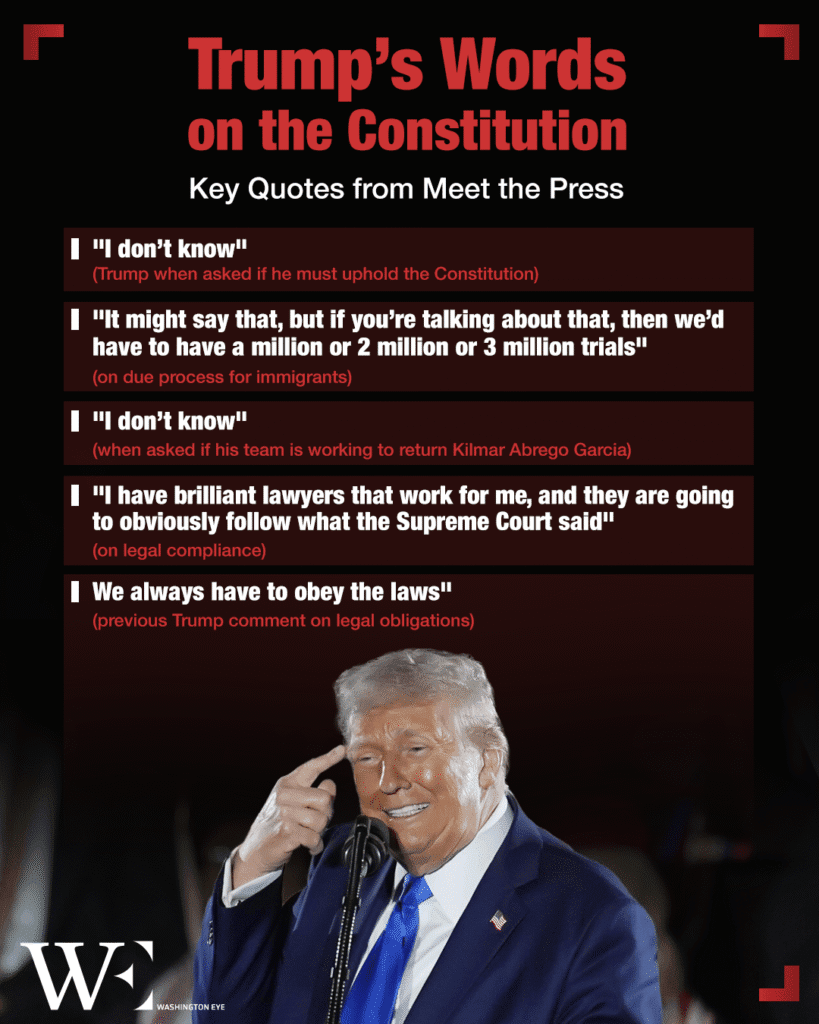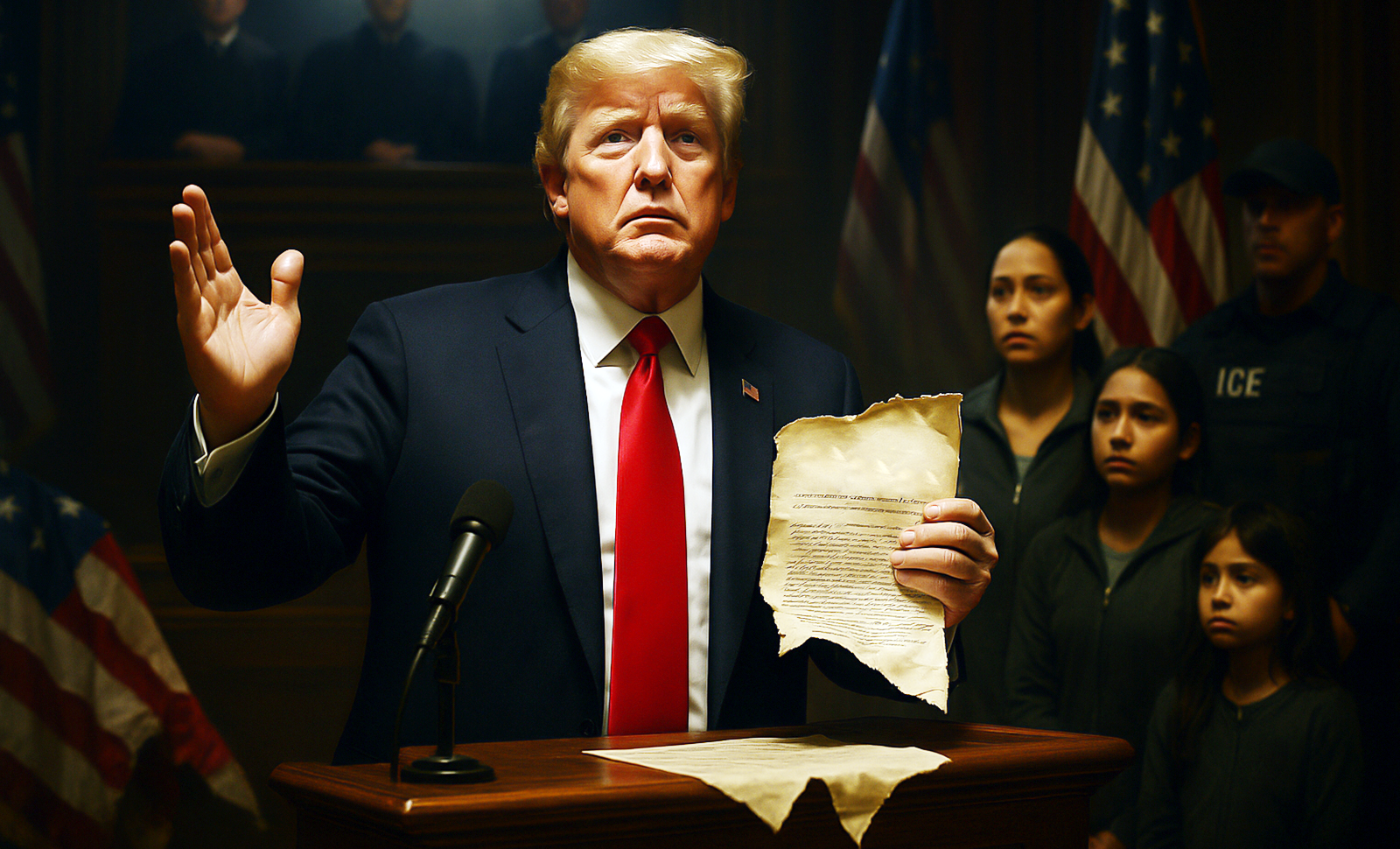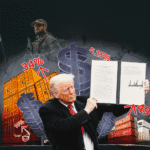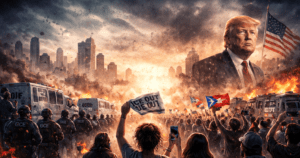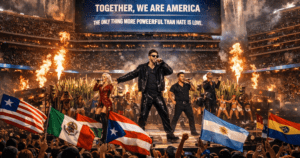In a wide-ranging interview that aired recently on Meet the Press, President Donald Trump raised eyebrows when asked if he is obligated to uphold the Constitution. His answer—“I don’t know”—came amid a broader conversation about his administration’s efforts to carry out what he has called the “largest deportation operation” in U.S. history. The comment, delivered during a segment filmed at Mar-a-Lago, has reignited debate about the balance between executive authority and constitutional obligations, especially concerning immigrants’ rights.
Legal Foundations: The Constitution and Due Process
The Fifth Amendment of the U.S. Constitution asserts that “no person shall be deprived of life, liberty, or property, without due process of law”. Courts have long interpreted this clause to apply to all persons within U.S. jurisdiction, regardless of citizenship status. Yet President Trump openly questioned whether this standard should be upheld in the context of his deportation agenda, arguing that ensuring due process for millions of undocumented immigrants would create unmanageable delays.
He told moderator Kristen Welker, “It might say that, but if you’re talking about that, then we’d have to have a million or 2 million or 3 million trials”. Trump’s framing implies that constitutional protections, while ideal in theory, might be negotiable in the face of logistical constraints. However, legal experts note that immigration due process does not involve full criminal trials, but rather proceedings before immigration judges within the Justice Department.
Executive Power and Judicial Resistance
Trump’s position is also part of a broader conflict between the executive branch and the judiciary over immigration enforcement. His administration has sought to use the 1798 Alien Enemies Act—a statute historically reserved for wartime threats—to rapidly deport alleged members of the Venezuelan gang Tren de Aragua. By claiming the gang poses an invasion-level threat linked to the Venezuelan state, the administration aims to circumvent normal procedures under the Immigration and Nationality Act.
This legal maneuver has encountered firm resistance from the courts. In multiple rulings, including a notable one on April 19, 2025, the Supreme Court blocked deportations that were being carried out without proper legal process. In that case, buses carrying detainees to an airport in Texas were turned back after the Court’s emergency decision. Justices reaffirmed that even noncitizens accused of serious crimes are entitled to basic procedural safeguards before removal from the U.S.
A Case in Point: Kilmar Abrego Garcia
One case emblematic of these tensions involves Kilmar Abrego Garcia, a Salvadoran man who was deported despite a 2019 court order barring such action. The Trump administration accused Garcia of gang affiliation, a claim disputed by his wife and lawyer. The Supreme Court later ruled that the government must “facilitate” his return to the U.S. so he could challenge the deportation—a directive the administration has yet to fully comply with.
When asked if anyone in his administration was working with El Salvador to bring Garcia back, President Trump again responded, “I don’t know”, and suggested that the attorney general would be better suited to answer. The lack of follow-through in this high-profile case has raised concerns about the administration’s adherence to court orders and the limits of executive discretion.
Ambiguity at the Top: Presidential Duty and Public Perception
Perhaps most consequential is Trump’s answer to the question of whether, as president, he must uphold the Constitution. “I don’t know”, he said. “I have brilliant lawyers that work for me, and they are going to obviously follow what the Supreme Court said”. While Trump has previously stated that “we always have to obey the laws”, this noncommittal stance toward constitutional obligations has unsettled scholars and legal observers.
Presidents swear an oath to “preserve, protect, and defend the Constitution of the United States”. While disagreements about interpretation are common, explicit doubt about whether that duty applies marks an unusual moment in presidential rhetoric. Supporters may view Trump’s response as a pragmatic expression of executive frustration, but critics warn it reflects a deeper erosion of institutional norms.
The implications go beyond immigration. Trump’s comments invite questions about how core constitutional principles are upheld—or sidestepped—when they conflict with political goals. As his administration continues to pursue sweeping policy changes, the durability of the Constitution’s safeguards is likely to remain a central issue.
A Final Note
The implications go beyond immigration. Trump’s comments invite questions about how core constitutional principles are upheld—or sidestepped—when they conflict with political goals. As his administration continues to pursue sweeping policy changes, the durability of the Constitution’s safeguards is likely to remain a central issue. How this moment is remembered may depend on how firmly the nation insists that no office is above its founding charter.
